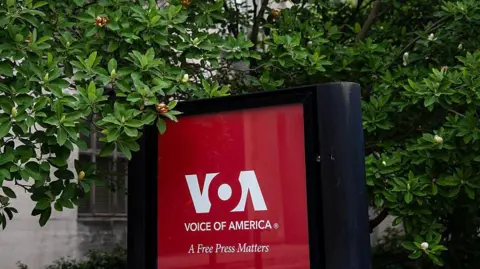In a dimly lit office, a weathered newspaper editor, clutching a copy of The Daily Pulp, succinctly vents, "It's unfair to lift censorship suddenly." This moment, laden with irony, has been immortalized by Abu Abraham, one of India’s most poignant political cartoonists whose work elegantly critiqued the establishment during the tumultuous Emergency of 1975. This 21-month span marked the severe curtailment of civil liberties and press suppression orchestrated by Indira Gandhi’s regime.
On June 25, 1975, the media landscape changed overnight as censorship laws took effect, forcing many journalists to conform to government narratives. The leader of the opposition, LK Advani, famously remarked that many editors "chose to crawl" rather than stand against the constraints. Abu's satirical brilliance is evident in a cartoon depicting a man who quips about editors being "more loyal than the censor," underscoring the press's complicity in its own repression.
Fast forward to modern-day India, and it appears that history is repeating itself—India is ranked 151st in the World Press Freedom Index, with growing concerns about journalistic independence under Prime Minister Narendra Modi's government. Critics voice worries over escalated pressures on reporters and an increasingly conformist media landscape, a point the government dismisses as misinformation.
Abu returned to India in the late 1960s after a successful stint in London, where his cartoons first appeared in esteemed outlets like The Observer and The Guardian. He joined the Indian Express during a time of intense political unrest. Reflecting on his experience, he noted that initially rigid censorship laws relaxed after a few weeks but were reinstated after 12 months. Abu’s cartoons from this era boldly proclaimed “Not passed by censors,” a reminder of the stifling environment.
One unforgettable cartoon portrays President Fakhruddin Ali Ahmed signing the Emergency proclamation from his bathtub, hinting at the casualness of the autocratic decree. His other works cleverly spotlighted the absurdities of the government's propaganda during the Emergency. One cartoon cleverly asked readers to "Smile!" while another depicted a protester hastily correcting their sign to read "SaveD democracy," a grim reminder of how democracy had become an afterthought in public discourse.
Abu's work wasn't merely a satirical commentary; it wielded political power and confronted dynastic rule symbolized by the figure of Sanjay Gandhi, whose influence during the Emergency only increased public fear and skepticism. To Abu, “nothing was non-political”, and he believed that politics saturated every aspect of society and the media.
His career, which began in journalism, quickly transitioned into political cartooning after he garnered recognition in London. After brief encounters with prominent British cartoonists and newspapers, he cemented his place in the world of political commentary. Changing his name to "Abu," upon recommendations from The Observer’s editor, he was encouraged to maintain creative control—a concept that resonated throughout his career.
Abu’s satirical prowess extended beyond cartoons; during his time in the Upper House of Parliament from 1972 to 1978, he advocated for freedom of expression while continuing to create and critique through his art. His "Salt and Pepper" comic strip reflected daily life and societal absurdities.
Abu Abraham, who passed away in 2002, left behind a legacy interwoven with humor and deep-seated truths. As he stated, the decline in laughter might stem from an unsettling overlap of reality and absurdity—a theme that rings as true today as it did in his time. His unyielding spirit in the fight against censorship and his relentless pursuit of truth through humor continues to inspire generations of journalists and artists alike.






















